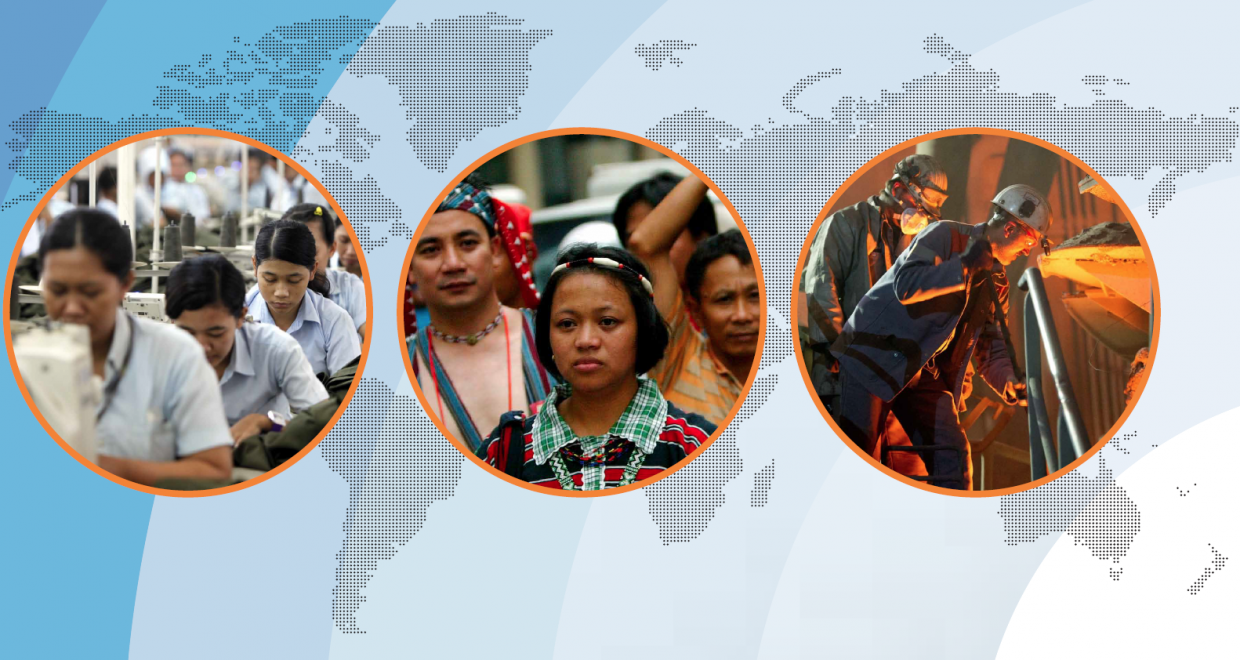Finding a way through the A2R maze: OHCHR’s Accountability and Remedy Project
The decision by the UN Working Group to focus on access to remedy at the 2017 UN Forum on Business and Human Rights is a timely and welcome one. While there is evidence of progress and innovation in relation to Pillars I and II of the UN Guiding Principles on Business and Human Rights (UNGPs) relating to the State Duty to Protect, and the Corporate Responsibility to Respect, there is a danger that Pillar III on “Access to Remedy” is being left behind.
Yet inaccessibility of remedies in business and human rights cases is a serious and, in some respects, worsening problem. Report after report documents the enormous (and in many cases insurmountable) obstacles faced by victims seeking remedies for business-related human rights abuses. In the few cases where a remedy of some kind is achieved, it rarely (if ever) is an “effective” one by international standards.
OHCHR’s Accountability and Remedy Project has been developed to respond to these concerns. Begun in 2013, this work was recognised by the Human Rights Council in June 2014, and launched in November 2014 as the OHCHR Accountability and Remedy Project (or the “ARP” as it is affectionately known).
OHCHR’s Accountability and Remedy Project has one key aim – to help States strengthen their implementation of Pillar III of the UNGPs. This sounds straightforward enough, though the scale of the task should not be underestimated. The underlying legal and structural issues are extremely challenging and, in many cases, staggeringly complex. The aim of the Accountability and Remedy Project, since its inception, is to cut through this complexity and provide States with ideas for things that can be done, at a very practical level, to make remedy more accessible for those whose human rights have been adversely impacted by business activity. In other words, while the project relies on and draws from rigorous legal research, its aim is to uncover practical, real world solutions.
Following the Human Right Council’s mandate, the first phase of work (“ARP I”) was devoted to issues related to the use of judicial mechanisms in business and human rights cases and prioritised six key themes: (i) clarifying domestic liability concepts under domestic regimes, (ii) cross-border challenges, (iii) overcoming financial obstacles, (iv) “effective” remedies in criminal cases, (v) “effective” remedies in civil cases and (vi) supporting domestic law enforcement agencies. The conclusions drawn from this research – involving stakeholder surveys, specially commissioned research, multi-stakeholder consultations and workshops with State representatives from many different jurisdictions – were formally presented to the Human Rights Council by way of a written report in June 2016.
OHCHR is now well into the second phase of its work (“ARP II”) which, pursuant to a follow-up mandate by the Human Rights Council in June 2016, is concerned with the role of State-based non-judicial mechanisms. Three papers have been published so far: a preliminary scoping paper, a sector study on issues arising in “high-risk” sectors and, most recently, a discussion paper setting out the outcomes of an extensive information-gathering exercise about the role of State-based non judicial mechanisms in a diverse range of jurisdictions.
By the time the 6th annual UN Forum on Business and Human Rights takes place in Geneva in November 2017, almost eighteen months will have passed since the conclusion of ARP I, and the programme of work known as “ARP II” will have entered its final stages.
The Forum is, therefore, a welcome opportunity to pause and reflect on what has been achieved, and what still needs to be done.
The research and conclusions from both phases of the OHCHR Accountability and Remedy Project will be discussed during two sessions at the Forum, both taking place on 28th November.
In the morning, OHCHR will be presenting its discussion paper on ARP II. There will be an opportunity to discuss the fascinating insights gained from the OHCHR’s research so far (all of which have a bearing on the effectiveness of State-based non-judicial mechanisms from a user’s perspective) and to gather ideas on the best ways to build on this new knowledge and respond to these issues and challenges. Information and feedback gathered at this session will feed directly into the OHCHR’s final report to the Human Rights Council (a consultation draft of which is to be made available in January 2018).
In the afternoon, in a session on effectiveness of judicial remedy, Ms. Lene Wendland, Chief of OHCHR Human rights and Economic and Social Issues Section, will be leading a panel aimed at gaining feedback on the outcomes of ARP I, and particularly the set of practical “Policy Objectives and Elements” that can be found in the Annex to the High Commissioner’s 2016 Report to the Human Rights Council. Consistent with the OHCHR’s overall approach to this work, the focus will be on the practical steps that can be taken to improve the effectiveness of judicial mechanisms in business and human rights cases, and the underlying regimes they are called upon to enforce.
OHCHR encourages all Forum participants to join these sessions and contribute to a stimulating and constructive discussion on accountability and remedy.
Elisabeth Andvig is an Associate Expert in Business and Human Rights and Project Manager, OHCHR Accountability and Remedy Project II, Office of the UN High Commissioner for Human Rights.





